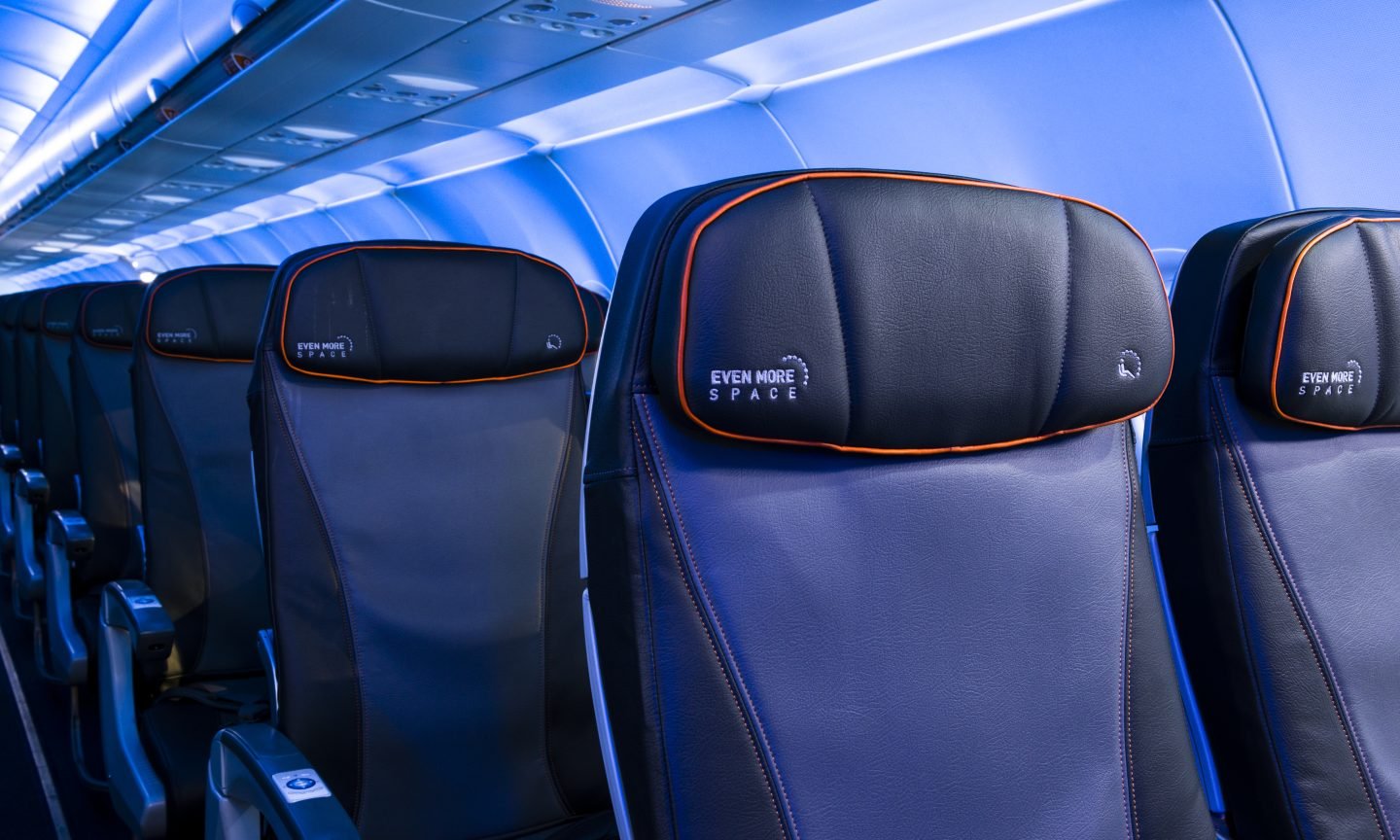Business travel’s wearing a new suit. Profits are expected to return to ‘normal’ by 2024, but that doesn’t mean business as usual for the industry – far from it.
Companies and their employees are looking at old habits with a fresh pair of eyes, clearing the runway for more change.
In this blog, we’ll put numbers to their thoughts, answering key questions like:
Do travel opportunities still motivate workers?
How big is the bleisure trend, really?
And how can services land with today’s business travelers?
Business travel, but different
Up until this point, business travel’s been getting off the ground.
According to the latest Global Business Travel Association (GBTA) industry poll, international trips are back to 50% of 2019 levels, while domestic travel has reached 63%. Different research will give slightly different figures, but the general story is that the sector has rebounded since lockdowns, and outrun expectations.
But travel managers aren’t cracking open the champagne just yet. They have another hill to climb: the side effects of a slowing economy.
Alongside reports of companies cutting meetings-related travel, year-on-year, fewer professionals say they typically take a business trip at least every 2-3 months (-6%), a drop that’s even sharper among workers in Europe and North America (-14%). So, either they’re traveling less or planning to in the future.
And it’s not just businesses that are weighing up costs/benefits more. Many travelers want to feel as though their corporate trips are warranted, especially now ‘flight shame’ has entered the chat.
Almost a quarter of business travelers say corporate trips are a perk, not a necessity.
A trending question is, can we really justify getting on a plane for an event that could happen virtually? And now videoconferencing tech is everywhere, and much-improved, it’s easier for both businesses and employees to make a case against in-person meetings.
No one can confidently say what all this means for business travel in the long run, but there’s plenty of reason to believe the industry will pick up in 2023, even if its recovery does initially cool off.
Bleisure, combining business with leisure, is kind of a big deal
Workers might be looking to reduce the number of trips they take, but few are likely to push back on them.
Instead, many will probably opt for brands that allow them to offset their emissions – given business travelers are significantly more likely to say they’re tempted by providers with good eco policies than average.
And as the CMO of Amex GBT, Evan Konwiser, reminds us, teams have become more spread out over time; there’s an argument that more virtual teams and videoconferencing have actually created more demand for business travel.
So, several of the industry’s challenges could be deemed opportunities depending on where you’re standing.

We also need to remember that businesses and consumers all responded differently to the pandemic.
While some workers are keen on a home-based lifestyle and would happily wave international conferences goodbye, for others, these events are one of the reasons they do their job.
Year-on-year, there’s been a 14% rise in professionals saying that finding staff is their company’s top challenge right now, and businesses that don’t offer travel perks might lose access to part of the talent pool.
Whether the bleisure trend is overblown or not, our data shows high demand for leisure activities within business trips, especially among younger workers.
35% of business travelers say they like to explore the place they travel to.
Business travelers are also more likely to describe themselves as social/outgoing (+11%), to be interested in adventure sports (+20%), and to use ticket apps (+22%) than average – a sign many are on the hunt for a good time. And even as some businesses cut back on nonessential travel, others are pouring money into it.
The sector is fast-changing, but its association with collaboration and culture remains strong, and a lot of businesses/workers value these trips a great deal.
Employee-centric strategies are the way forward
It’s not just how often employees travel and their attitudes that have changed, but also what they expect from travel services.
According to Kirstie McLatchie, director at software company Deem, travel services have historically been more focused on benefiting employers than easing employees’ travel burdens – with the ability to track expenses often taking priority over good customer interactions. But this approach won’t do them any favors in today’s climate.

Some might assume that business travelers have everything booked for them, but that’s rarely the case.
77% either choose any options they like, options from a shortlist, or options within a certain budget.
Brands wanting to make more of their business travel offerings should remember that they’re often catering to consumers, not companies. And their customers will want to book business trips in a similar fashion to personal ones.
Still, business travelers are a select group of consumers who shouldn’t be targeted in the same way as vacationers.
Discuss online, then book
Business travelers start their purchase journey from a unique place.
When we asked leisure travelers what sources they use to research and plan their get-aways, social media came 4th on the list – behind search engines and in-person chats. In contrast, social media ranked 2nd among business travelers, with online forums also featuring higher on their leaderboard.
And we can link this back to their motivations for going online. Business-related networking, making new connections, and sharing opinions are some of their most distinctive reasons for using the internet; and, outside China, they’re much more likely to use community-oriented platforms like Discord (+18%) and Clubhouse (+71%).
They seek tips from their wider community and turn to social platforms to get them.
Services like Tripadvisor maintain business travel forums, and this audience has created their own communities (r/BusinessTravel) and inside jokes.
Ultimately, they want to see and hear from other travelers – whether they’re reading travel news shared by their Linkedin network, or using TikTok to find fun things to do in the city they’re visiting. Brands hoping to put themselves on the business travel map have a lot to gain by prompting or adding to the conversation.
The simpler, the better
Another thing to know about business travelers is that they’re tech-savvy, high-end shoppers.
They’re much more likely to say they buy new tech products as soon as they’re available, to own a VR headset, and to identify as premium shoppers.
Because of this (and the fact they aren’t footing the bill), they care more about good customer service than value for money. Compared to vacationers, they’d also rather have flexible booking than free cancelation, and the ability to book all their options together.
On the whole, they’re willing to spend extra for a smooth experience and innovative tools.

That’s not to say they don’t value discounts and the ability to use reward/loyalty points, but getting the details ironed out quickly is their main goal.
Business travelers are 22% more likely than average to say they’d book a package deal (where everything is sorted for them).
Among other things, Deem’s platform Etta allows employees to book a flight, change a hotel reservation, and find the greenest options within the same space. And Amadeus, in partnership with Microsoft, lets its customers search, compare, and book all aspects of their trip without ever leaving Microsoft Teams, and then share any information with colleagues in Teams chats.
These solutions, designed to make the travel experience more fluid and data-driven, are a direct response to this group’s evolving needs and preferences. It’s likely more tools will crop up in years to come, especially as employers seek out services that make life easier for their employees.
Business travel, in brief:
Today’s employees are more focused on wellbeing and fitting work around their lifestyle, and it’s no longer ‘cool’ to make too many unnecessary flights. Services and employers will need to cater to this outlook.
Business travel is often needed for growth, especially as companies expand into international markets. And many workers actively seek out employers that offer travel perks, believing these make them happier and more productive.
Services need to remember that they’re catering to employees, not companies, and that business travelers are a select group of consumers. They stand out for wanting seamless management tools and personalized recommendations that highlight the shortest and greenest options.
























